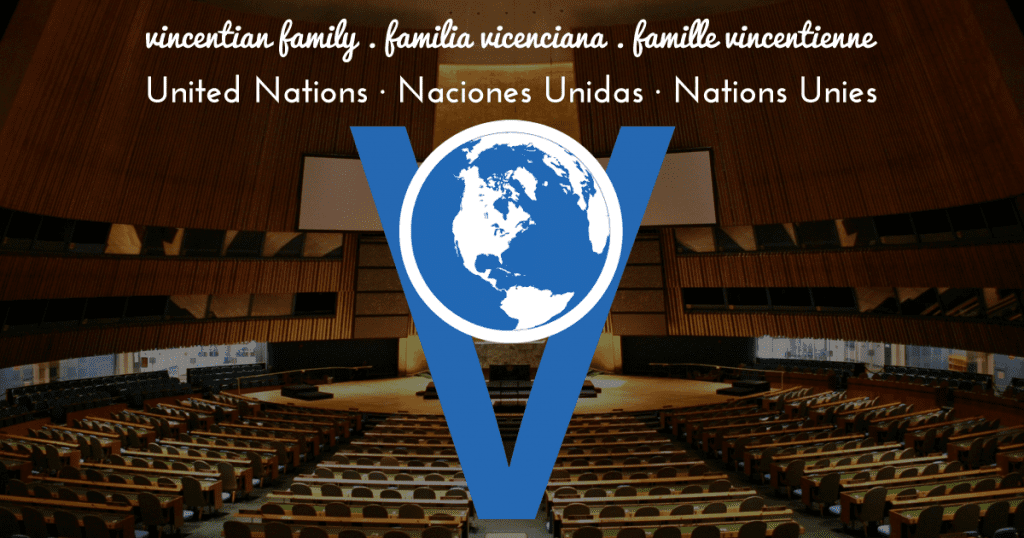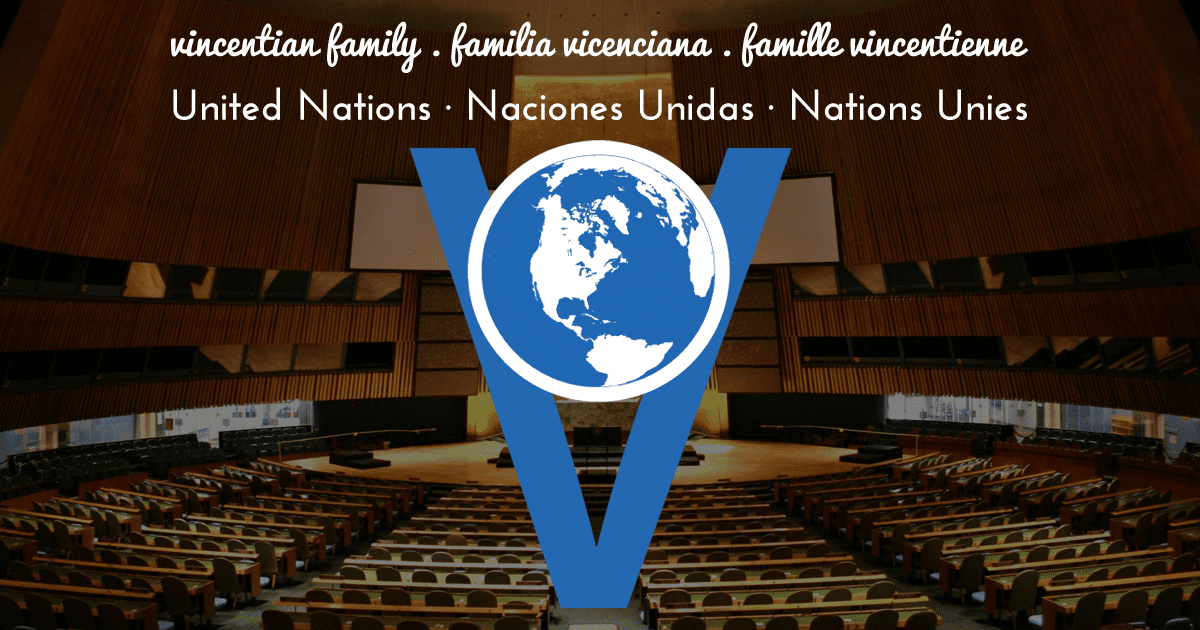The United Nations and Peace
This is a season in which we long for peace. During his traditional Christmas Day blessing, a little over a week ago, Pope Francis prayed for peace in major hotspots around the world. UN Secretary General, Antonio Guterres, on New Year’s Eve called for this international resolution: “Let us resolve to put peace first.”
Amid vast global concerns as we cross the threshold into 2017, one might ask, “What is the United Nations doing to promote peace?”
HUMANITARIAN AID
A “lack of” resources can contribute to conflict. And humanitarian need has grown in frequency, scale, and magnitude over the past quarter century, according to the UN’s Office for the Coordination of Humanitarian Affairs. OCHA’s 2017 Global Humanitarian Overview reflects that in 2016, 973,019 people in Nigeria were reached by food, crops, and livestock. About 11,271 persons were rescued in Libyan waters. 1.18 million Syrians received protection, including evacuation and legal assistance. Another 5.1 million patients received medical care in Syria. 1.2 million young children and women received medical attention in the Sudan.
In Haiti, 283,975 people received shelter or NFI assistance after Hurricane Matthew struck. After Fiji experienced Cyclone Winston in February, 130,000 persons received shelter. 3 million people in 17 governorates of Yemen were reached with emergency food assistance in March, 2016. These are examples of broader UN-coordinated humanitarian aid efforts which can help to ease social pressure.
WEAPONS-REDUCTION EFFORTS
The UN also has worked on pacts related to the disarmament, reduction, and elimination of weapons of mass destruction; halting the development and stockpiling of chemical and bacteria-related weapons; and outlawing landmines.
PEACEKEEPING
Member States agree, under the UN Charter, to settle disputes by peaceful means and refrain from threatening or using force against other states. But from media we see varying interpretations of this commitment and might like to see the principle applied to treatment of groups within states as well.
The UN Charter gives primary responsibility for maintaining peace and security to the UN Security Council, which establishes peacekeeping operations. It engages in actions such as imposing sanctions, requiring arms inspections, dispatching military operations, monitoring election and more. UN forces have been deployed to prevent the outbreak of conflict and to stop conflict from oozing across borders. They have stabilized situations after cease-fires, cleared mines, assisted in implementing peace agreements, guided states in times of transition to more stable governments, worked on disarmament, provided electoral assistance, and promoted social and economic recovery. Often, the UN goes where other nations will not commit.
STATISTICS
The UN has been involved in 71 peacekeeping operations since 1948. As of August 16, 2016, there were 16 missions with just over 100,000 uniformed personnel, which included 85,442 troops, 12,885 police, and 1,692 military observers. Peacekeepers are serving in Syria, Mali, the Democratic Republic of the Congo, Sudan, Lebanon, Ivory Coast, and other nations. Through October, 2016, 3,517 persons had given their lives over the years while serving in UN peacekeeping operations.
PEACEKEEPING EFFORTS:
The UN would have played a role in defusing the Cuban Missile Crisis, in 1962, and the Middle East Crisis, in 1973. The Iran-Iraq war came to an end in 1988 with a UN–sponsored peace settlement. In 1989, the UN was involved in negotiations which led to the withdrawal of Soviet troops from Afghanistan. In the 1990s, the UN was instrumental in restoring sovereignty to Kuwait.
A peacekeeping force (UNMIL) was sent to Liberia in 2003. It provided security guarantees which enabled the UN and other agencies to launch a series of humanitarian and infrastructure projects throughout the country. UN Peacekeepers, from 1999-2005, helped implement a peace agreement which ended civil war in Sierra Leone. There has been peace in Lebanon since the UN Mission there following the war in 2006.
The UN also played a significant role in ending civil wars in Cambodia, El Salvador, Guatemala and Mozambique and resolved or contained conflict in various other countries. UN peacekeepers further were active in missions to Burundi, Côte d’Ivoire, Timor-Leste, Liberia, Haiti, Kosovo, and many other locations.
In January, 2016, the UN was asked to monitor the implementation of a peace agreement between the Colombian government and the rebel Revolutionary Armed Forces of Colombia (FARC).
HIPPO REPORT CALLS FOR CHANGE
Clearly, the nature of conflict and threats to peace has evolved, and high demands are placed on peacekeeping operations. Peacekeeping forces have been successful in some locations while criticized in others, particularly in instances of sexual abuse or inaction which contributed to the deaths of civilians. Peacekeeping efforts and policies are the source of ongoing review by the UN as it attempts to address increasingly complex root causes and effects of conflict, which are intensified by factors such as international terrorism and violent extremism. During 2016, one often would hear from UN panels of the importance of focusing on both root causes and prevention of conflict.
Former UN Secretary General Ban Ki-Moon commissioned a high level panel on peace operations to determine how the UN could become more fit for peacekeeping purpose. The result was the HIPPO (High Level Independent Panel on Peace Operations) Report, delivered in June, 2015. The report calls for the UN Security Council, essentially, to more strongly focus upon delivery on the ground.
In his report on HIPPO, Mr. Ban outlined some of the multiple challenges faced by the UN in terms of peace keeping and made recommendations for change.
Mr. Ban noted the number of violent conflict situations had nearly tripled from 2008 through October, 2015. Violent extremism and organized crime build on and abet local rivalries, he pointed out. Resource deprivation and widespread violations of human rights further fuel conflict. In 2015, the number of people displaced by war was about 60 million and global humanitarian needs were reaching $20 billion. Division and competition between States hinder responses, Mr. Ban said.
HIPPO’s Key Recommendations:
The HIPPO Report outlined four main shifts needed to address peace and security issues–the primacy of politics; a flexible use of the full range of peace operations; stronger partnerships and a field-focused UN Secretariat; and people-centered peace operations. UN peacekeepers must more deeply engage persons at the grass roots. HIPPO includes a strong push for conflict prevention and protection of civilians. It also notes that UN peace operations are not the appropriate tool for military counter-terrorism operations.
It points out that because there often is an absence of peace to keep, UN forces are asked to manage conflict. HIPPO calls for a rethink of capabilities and concepts to support conflict management missions. It further calls for interpreting peacekeeping principles flexibly and not using them as a shield for inaction.
HIPPO embraces a strong human rights approach. Reporting key human rights developments to the Security Council and in engagements with Member States, together with regular public reporting on human rights situations, are among its suggestions.
There are multiple other HIPPO recommendations which include achievable mandates based on clear analyses of conflict and a political strategy; a vision and roadmap for stronger networking of national and regional standby capabilities, field-focused support, rapid deployment capability, better funding of African Union peace support operations, gender expertise within all mission components, strong leadership, and accountability.
OTHER UN EFFORTS TO PROMOTE PEACE:
SUSTAINABLE DEVELOPMENT GOALS: According to the UN, modern challenges such as poverty, hunger, lack of resources, xenophobia and racism, corruption, disease and environmental damage all have potential to fuel conflict and threaten peace. 2016 was a year of furthering the cause of the UN’s 17 Sustainable Development Goals (SDGs), which promote the dignity of each person, contribute to the elimination of conflict-causing problems, and provide an underpinning for peace.
COMBATTING XENOPHOBIA AND RACISM: Many panels at the UN this year further addressed xenophobia and racism as part of a global TOGETHER Initiative. A consistent message in UN halls was, “change the narrative about migration and refugees,” which means to reduce fear by showcasing the benefits of migration and refugees to economies and nations.
MEDIATION SUPPORT UNIT: The UN has a Mediation Support Unit (MSU), which engages in a wide range of activities including operational support to mediation, facilitation and dialogue processes. MSU builds the mediation capacity of partners and develops mediation guidance and best practices.
REVIEWS: The UN reviews many aspects of peacekeeping including, among multiple others, the issue of women, peace, and security. (UN panels have spoken this year of stepping up the engagement of women in peace negotiations and greater inclusion of women in UN peacekeeping troops). The importance of conflict prevention is at the heart of many discussions.
ADDRESSING SEXUAL VIOLENCE AMONG PEACEKEEPING FORCES: Allegations of sexual abuse against women and children have arisen from multiple countries over the years, perhaps most prominently from the Central African Republic, and more recently from the Republic of Congo, the Democratic Republic of Congo, as well as other countries. The Security Council on March 11, 2016, endorsed special measures recommended by Mr. Ban to prevent and combat sexual exploitation and abuse by UN peacekeepers.
Steps are being taken to prepare toolkits and mechanisms which clarify appropriate responses to abuse. But countries contributing troops are responsible for investigating, prosecuting, and punishing their members, so some individuals act with impunity. The Security Council in March asked the Secretary General to replace military and police units from any contributing country that failed to hold perpetrators accountable. Others steps are needed, such as addressing the view troops have towards new cultures in areas they serve.

Tags: United Nations









0 Comments